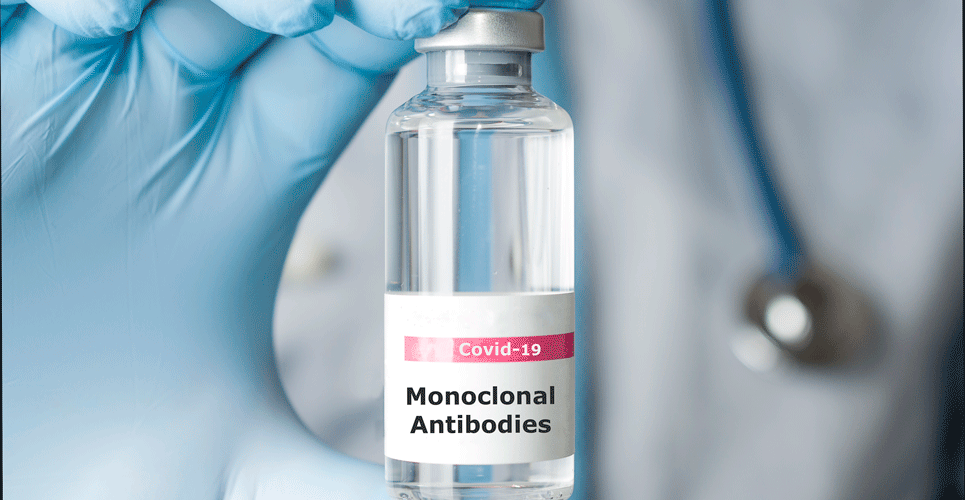A systematic review suggests that the combination tixagevimab/cilgavimab is effective for immunocompromised patients with COVID-19
A systematic review by UK researchers, currently available as a preprint, concluded that the monoclonal antibody combination tixagevimab/cilgavimab is effective against adverse outcomes in COVID-19 including breakthrough infections, hospitalisation, intensive care unit (ITU) admission and both all-cause and COVID-19 specific mortality.
Tixagevimab/cilgavimab (Evusheld) is licensed as a pre-exposure prophylaxis of COVID-19 in adults who are not currently infected with COVID-19, without a known recent exposure to an infected individual infected as well as those who are unlikely to mount an adequate immune response to the vaccination against the virus and finally in those where vaccination is not recommended. Both monoclonal antibodies simultaneously bind to distinct, non-overlapping epitopes of the COVID-19 spike-protein receptor-binding domain to potently neutralise the virus. Trial data in those who were at an increased risk of an inadequate response to vaccination showed that COVID-19 occurred in only 0.2% of those given tixagevimab/cilgavimab compared to 1% of patients receiving placebo. Furthermore, combination treatment has also been found to be effective in protection against progression to severe COVID-19 or death compared to placebo in unvaccinated individuals with mild to moderate disease.
Despite these positive findings, there is limited evidence from a real-world setting and against COVID-19 variants such as Omicron. Moreover, while Evusheld has been approved for use in many countries, the UK government recently took the decision that there is insufficient evidence available to support procurement and deployment of Evusheld through emergency procedures. In an attempt to provide more data on the effectiveness of tixagevimab/cilgavimab in those who are immunocompromised, in the present study the UK researchers sought to assess the efficacy against breakthrough infections, hospitalisation, ITU admission and mortality.
They searched for randomised, controlled trials, observational or cohort studies where the combination was used as prophylaxis and in studies where breakthrough infections were reported. Secondary outcomes reported upon were hospitalisations, ITU admissions and death.
Tixagevimab/cilgavimab outcomes among immunocompromised patients
A total of 17 studies with 24,773 immunocompromised participants of whom, 10,775 had received the combination therapy were included in the analysis.
Overall, the clinical effectiveness of the combination against breakthrough infections compared to control patients was 40.47% (95% CI 29.82 – 49.67, p < 0.0001). The combination was also significantly more effective than control against hospital admissions (69.23%, 95% CI 50.78 – 81.64, p < 0.00001). Moreover, the effectiveness against ITU admission was also very high at 87.89% (95% CI 47.12 – 98.66, p = 0.0008).
In relation to both all-cause and COVID-19-related mortality, tixagevimab/cilgavimab was also very effective with overall values of 81.29% (p < 0.0001) and 86.36% (p = 0.035) respectively.
The authors concluded that their study, based on real-world evidence showed that tixagevimab/cilgavimab proved to be highly effective, particularly during the Omicron wave and called for future trials to evaluate the on-going certain of this benefit.
Citation
Suribhatla R et al. Systematic review of the clinical effectiveness of Tixagevimab/Cilgavimab for prophylaxis of COVID-19 in immunocompromised patients. MedRxiv 2022.

